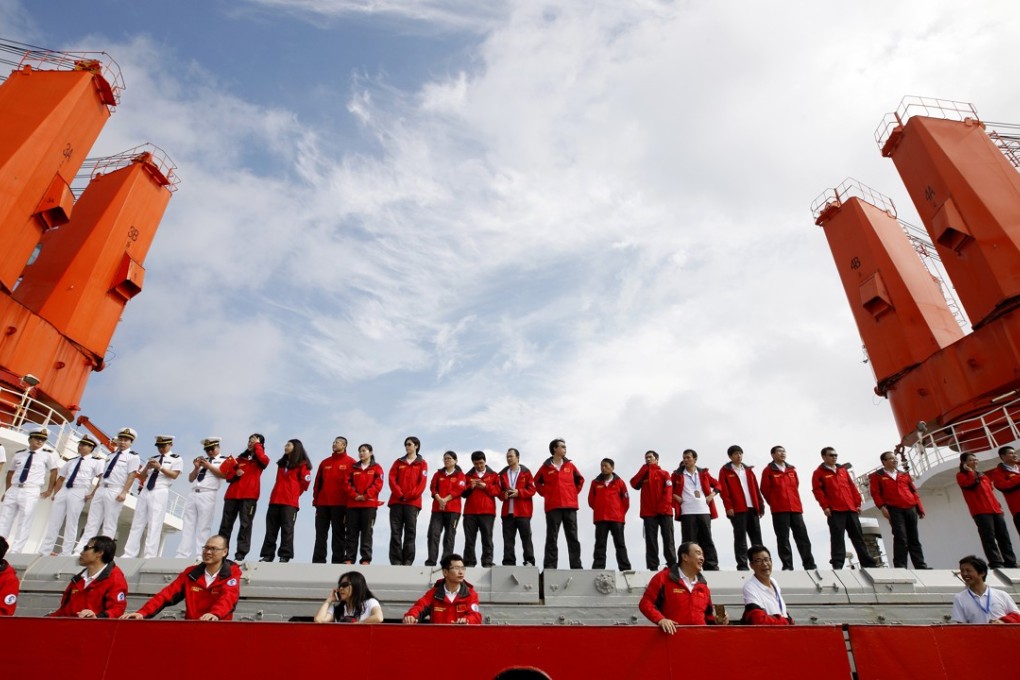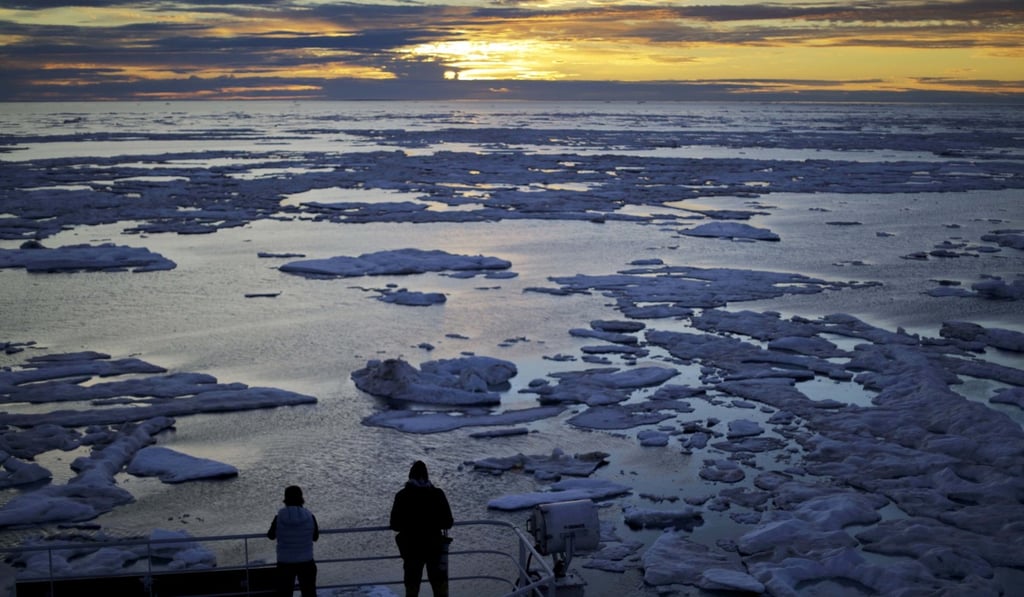Advertisement
China needs to spell out its Arctic ambitions, to ease suspicions
Elisabeth Braw says that increasing Chinese interest in the Arctic for trade, resources and research interests is starting to make northern European nations unsure of its intentions. An explanation from Beijing could put them at ease
Reading Time:3 minutes
Why you can trust SCMP
0

This summer, Norwegian Public Radio reported that an icebreaker was about to embark on a circumnavigation of the North Pole. But the icebreaker wasn’t Norwegian. In fact, the vessel doesn’t come from any of the countries that make up the Arctic: it’s Chinese, and its journey is just the latest illustration of China’s Arctic ambitions. Though none of the Arctic nations officially complain about their adopted neighbour near the North Pole, they are concerned. Beijing would be well-advised to listen to them.
The Chinese icebreaker, named Xue Long (Snow Dragon), carried some 100 scientists researching the effects of climate change on the Artic. With many Chinese companies eager to begin using Arctic waters as a shipping route, those effects interest the Chinese government. Indeed, Beijing is planning for such a route as part of its “Belt and Road Initiative”.
Other Chinese companies, meanwhile, are keen to tap into the Arctic’s vast natural resources, which include an abundance of petroleum and minerals. Thanks to its harsh weather, the Arctic is the only region in the world that still has large quantities of oil, minerals and natural gas. Earlier this month, news emerged that China will help finance Russia’s enormous Arctic LNG project. The China Development Bank will invest an undisclosed sum in Russian LNG giant Novatek’s Arctic LNG II.
There are three reasons for China’s interest in the Arctic: natural resources, trading routes and climate research. Beijing is serious about Arctic research for a simple reason: to understand the effects of climate change, the Arctic is the best crystal ball.

How China is inching into the void left when Trump pulled US out of Paris climate change deal
And it’s playing the long game. Back in 2004, it established an Arctic research station on Svalbard, the Arctic Archipelago administered by Norway. And four years ago – together with Japan, South Korea, India and Italy – it joined the Arctic Council as an observer. It has been investing in Greenland, Denmark’s autonomous region in the Arctic. Last year, for example, the company Shenghe Resources bought 12.5 per cent of Greenland Minerals and Energy A/S. Beijing has a large embassy in Iceland, a country of some 330,000 residents, and Chinese investments have been particularly welcome in the country following its 2008 financial collapse. Greenland, a self-governing region plagued by high unemployment, has also enthusiastically welcomed the Chinese attention.
Advertisement